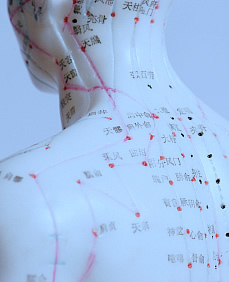Acupuncture for Gynecological / Genitourinary
What gastrointestinal disorders are treated by acupuncture? Digestive diseases that pertain to the gastrointestinal tract like abdominal bloating, colitis, are helped.
Acupuncture For Infertility
Acupuncture treatment has been used for thousands of years to increase fertility and promote pregnancy. In recent years it has been shown to be effective in increasing the success rate of in vitro fertilization (citation needed). Frequency and type of treatment will be determined in consultation with your acupuncturist depending on the history of previous attempts to get pregnant and health status at the time. Acupuncture is a treatment for both male and female infertility.
Acupuncture For Urinary Tract Infections
Urinary tract infections (UTI) are one of the most common, easily treatable infections. Symptoms of a UTI may include frequent, painful urination, pelvic or back pain, cloudy or discolored urine, and in more severe cases fever. Signs and symptoms will depend on where the infection is located in the urinary tract (kidneys, bladder or urethra), and this will be best diagnosed by your primary care physician. Acupuncture in the treatment of UTIs is effective in increasing white blood cell (leukocyte), thereby increasing the body’s ability to fight infection. Studies to date show that acupuncture raises humoral and cellular immunity for up to 30 days, with peak leukocyte increases within a few hours of treatment and at day 11. In addition, recent studies show that acupuncture is effective at treating and preventing recurrent UTIs. Acupuncture can be used as a stand alone or adjunct treatment method depending on the severity and length of infection. After a thorough intake and evaluation your acupuncturist will determine the best course of treatment for you.
Yamaguchi, N., Takahashi, T., Sakuma, M., Sugita, T., Uchikawa, K., Sakaihara, S., … & Kawakita, K. (2007). Acupuncture regulates leukocyte subpopulations in human peripheral blood. Evidence-Based Complementary and Alternative Medicine, 4(4), 447-453.
Alraek, T., Soedal, L. I. F., Fagerheim, S. U., Digranes, A., & Baerheim, A. (2002). Acupuncture treatment in the prevention of uncomplicated recurrent lower urinary tract infections in adult women. American journal of public health, 92(10), 1609-1611.
Author: Erica Rosen, LAc, EAMP, Dipl. O.M.
Acupuncture For Uterine Fibroids
Uterine fibroids (UF) are benign growths in the uterine muscle, and are common in approximately 30% of women in their reproductive years. The most common signs and symptoms include heavy, prolonged menstrual bleeding (menorrhagia), painful menstruation (dysmenorrhea), pelvic pressure or pain, backache, leg pains, urinary difficulty and constipation. Fibroid location, size and number will influence symptoms. UFs are vascularized through the uterine arteries. Recent studies show that electro-acupuncture (EA) is effective at reducing uterine artery blood flow, thereby reducing blood loss during menstruation. Acupuncture is also indicated to treat pain in general, as well as dysmenorrhea related pain.
Witt, C. M., Reinhold, T., Brinkhaus, B., Roll, S., Jena, S., & Willich, S. N. (2008). Acupuncture in patients with dysmenorrhea: a randomized study on clinical effectiveness and cost-effectiveness in usual care. American journal of obstetrics and gynecology, 198(2), 166-e1.
Çakmak, Y. Ö., Akpınar, I. N., Yoldemir, T., & Cavdar, S. (2011). Decreasing bleeding due to uterine fibroid with electroacupuncture. Fertility and sterility, 96(1), e13-e15.
Author: Erica Rosen, LAc, EAMP, Dipl. O.M.
Acupuncture For Menopause
Acupuncture is a growing treatment method for menopause related symptoms such as hot flashes, night sweats, vaginal dryness, insomnia and increased anxiety or irritability. Studies increasingly prove that acupuncture is particularly effective for treating hot flashes. Participants actively receiving acupuncture treatments experience decreased severity in their hot flashes. In addition, acupuncture decreases the frequency and severity of nocturnal (night-time) hot flashes thereby improving sleep quality. Anxiety and irritability are also positively influenced by acupuncture treatments due to acupuncture’s ability to guide the patient into the parasympathetic nervous system.
Huang, M. I., Nir, Y., Chen, B., Schnyer, R., & Manber, R. (2006). A randomized controlled pilot study of acupuncture for postmenopausal hot flashes: effect on nocturnal hot flashes and sleep quality. Fertility and sterility, 86(3), 700-710.
Errington-Evans, N. (2015). Randomised controlled trial on the use of acupuncture in adults with chronic, non-responding anxiety symptoms. Acupuncture in Medicine, 33(2), 98-102.
Author: Erica Rosen, LAc, EAMP, Dipl. OM
Acupuncture Treatments for Gynecological / Genitourinary

Speak With An Acupuncturist To See How We Can Help You!
Call 206.622.0246


 Gynecological / Genitourinary List
Gynecological / Genitourinary List